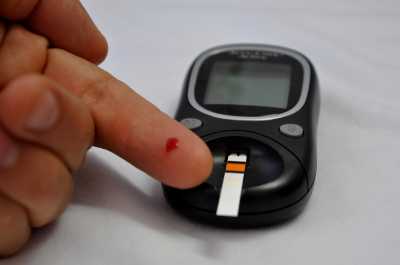15 Nov Children and Young Adults With Diabetes Have Increased Risk of Sudden Cardiac Death
MedicalResearch.com Interview with:
 Jesper Svane
Jesper Svane
Medical student
The Heart Center, University Hospital Rigshospitalet
Copenhagen
MedicalResearch.com: What is the background for this study?
Response: At the beginning of this research project, we were aware that persons with diabetes have an increased risk of death, which is partly explained by an increased risk of sudden cardiac death. However, previous studies on causes of death and mortality among young persons with diabetes, particularly type 2 diabetes, are sparse. Furthermore the incidence of sudden cardiac death among young persons with diabetes in a nationwide setting is unknown.
The main purpose of the study was to illuminate the risk of death and especially the risk of cardiac death among children/young adults with diabetes.
On a personal note, a friend of mine, who was healthy and fit, died suddenly a few years ago at the age of 19. This tragic death raised a lot of feelings as well as questions in me. When I got the chance to work with Dr. Lynge and Dr. Tfelt, I saw this as an opportunity to expand my knowledge of sudden cardiac death among the young. Furthermore, the opportunity of contributing to research in order to prevent these devastating events in the future was personally appealing to me.
I initiated the project together with Thomas Hadberg Lynge, MD, last year, with Jacob Tfelt-Hansen, MD, DMSc as supervisor. Both are experienced researchers within the field of sudden cardiac death. Dr. Tfelt-Hansen leads a very productive research group at Rigshospitalet, Copenhagen, whose main focus is arrhythmias and sudden cardiac death.
MedicalResearch.com: What are the main findings?
Response: The main finding in our study is that children and young adults with diabetes have a 5-fold excess mortality compared to children and young adults without diabetes. The leading cause of death was cardiac disease and children and young adults with diabetes have an 8-fold excess cardiac mortality compared to children and young adults without diabetes.
Sudden cardiac death – defined as a sudden, unexpected death due to cardiac cause – was the leading cause of cardiac disease among children and young adults with diabetes and the risk of sudden cardiac death was 7 times higher among persons with diabetes compared to persons without diabetes.
MedicalResearch.com: What should clinicians and patients take away from your report?
Response: The main message for the public is that although we have become better at treating diabetes, diabetes remains associated with increased risk of death, also among young persons.
Healthcare providers need to be aware that even young patients with diabetes have elevated risk of mortality and that this is mainly explained by increased risk of sudden cardiac death. We know from previous studies that persons dying from sudden cardiac death may have had symptoms prior to death, chest pain or syncope. Therefore, these symptoms need to be taken serious, also among young persons and particularly among persons with diabetes.
MedicalResearch.com: What recommendations do you have for future research as a result of this study?
Response: This was a retrospective observational study, and therefore we cannot prove a causal relationship, but only an association between DM and death from different causes. Further we did not have information on several risk factors of cardiovascular disease (e.g. smoking, BMI, lipids, and diet), which most likely have affected the association between DM and cardiovascular. Therefore, future research should try to illuminate the underlying causal relationship between diabetes and increased risk of cardiac disease and sudden cardiac death.
Disclosures: The Novo Nordisk Foundation contributed to my salary, but had no influence in the design and conduct of the study.
MedicalResearch.com: Thank you for your contribution to the MedicalResearch.com community.
Citation::
American Heart Association Meeting Report Poster Presentation M3127 – Session: EA.APS.10
November 13 2017
Note: Content is Not intended as medical advice. Please consult your health care provider regarding your specific medical condition and questions.
[wysija_form id=”1″]
Last Updated on November 15, 2017 by Marie Benz MD FAAD
